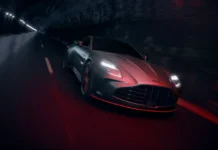
The first made-in-Europe Tesla cars have been delivered.
Tesla kicked off the first round of deliveries from its new Gigafactory Berlin-Brandenburg, with none other than CEO Elon Musk handing over the first examples. It’s a crucial move for the company — one that reinforces its position as it faces heavier competition and expands its capacity to meet the relatively high demand for EVs in Europe.
“This is a great day for the factory,” said Musk, and emphasized the plant’s importance as “another step in the direction of a sustainable future”. In time, the company aims to build 500,000 units annually in the town of Grünheide, just southeast of Berlin. It could take awhile to reach that sort of output, though, and German outlet Auto Motor und Sport noted that up to 30,000 vehicles may leave the factory by the end of this year.
Local Tobias Lindh caught took several photos of the event, which he shared via Twitter:
Tesla’s biggest move in a decade?
Apart from delivering the first Model Ys to excited European customer, Gigafactory Berlin-Brandenburg also plays a pivotal role in shifting resources and priorities throughout its other production facilities. Eliminating the need to export cars from North America or China — where its Shanghai plant has recently been critical to supply Europe — Tesla can focus on whittling down the long wait times customers are currently facing to see their Model Y or Model 3.
The German plant saw several delays, due to both government and local pressure. Even as the plant starts deliveries, some locals gathered to protest due, at least in part, to concerns over water usage and the number of trees that were cut down to accommodate it. While government officials gave Tesla a conditional go-ahead earlier this month, it may face future challenges as it ramps up production.

























